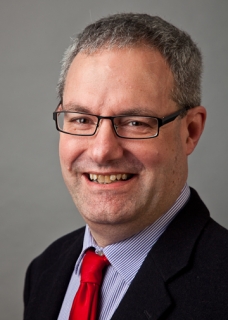 Lou Roper, SUNY Distinguished Professor of History, gave the keynote address at the Pirates, Ports, and Exports: Maritime Relations in the Age of Sail conference hosted by the United Kingdom’s Birmingham Research Institute for History and Cultures and the Centre for Reformation and Early Modern Studies at the University of Birmingham on June 23.
Lou Roper, SUNY Distinguished Professor of History, gave the keynote address at the Pirates, Ports, and Exports: Maritime Relations in the Age of Sail conference hosted by the United Kingdom’s Birmingham Research Institute for History and Cultures and the Centre for Reformation and Early Modern Studies at the University of Birmingham on June 23.
This international conference explored the relationship between land and ocean in the Early Modern period, with Roper’s keynote, titled “Poachers Turned Gamekeepers: The Guinea Company and How English Overseas Interests Became a ‘State’ Matter,” focused on how England’s short-lived Guinea Company succumbed to English political interests.
Formed in 1618, the Guinea Company began trading in western Africa for gold and redwood but after 1640 became the foremost English operator in the traffic in enslaved Africans with Barbados at the center. This trade provided the platform from which the company’s leadership pursued global interests and used their economic status and governmental connections to direct mid-seventeenth century English commercial and political policies and, by extension, the development of the English Empire.
The Guinea Company emerged at a time when the ocean was the key to social, cultural, economic, and political relationships, but negative repercussions of trade monopolization and maritime crime often emerged. The June 23 research conference was designed to address Europe’s relationship to the ocean and the problems that came from this relationship through various panel discussions.
In addition to his keynote, Roper also led one of the panel discussions—People and the Sea—on the societal aspects of the ocean.
Roper is a SUNY Distinguished Professor, the highest academic honor in the SUNY system, and a Fellow of the Royal Historical Society and the New York Academy of History.
His appearance at the conference is an extension of his renowned scholarship in the areas of Early Modern England and Colonial American history, research he has actively pursued since joining the New Paltz faculty in 1995.
Click here for more information on the Department of History at New Paltz.

